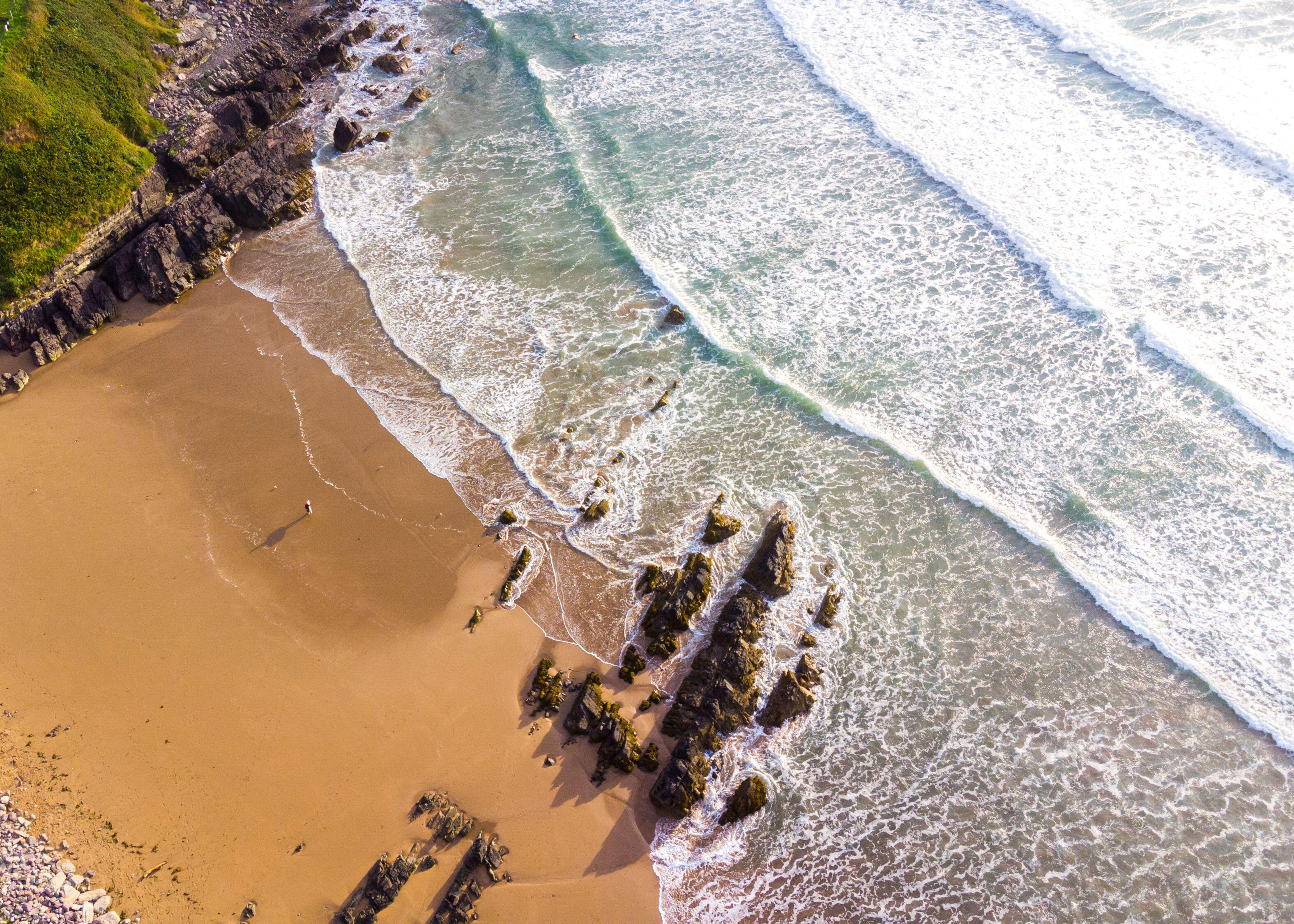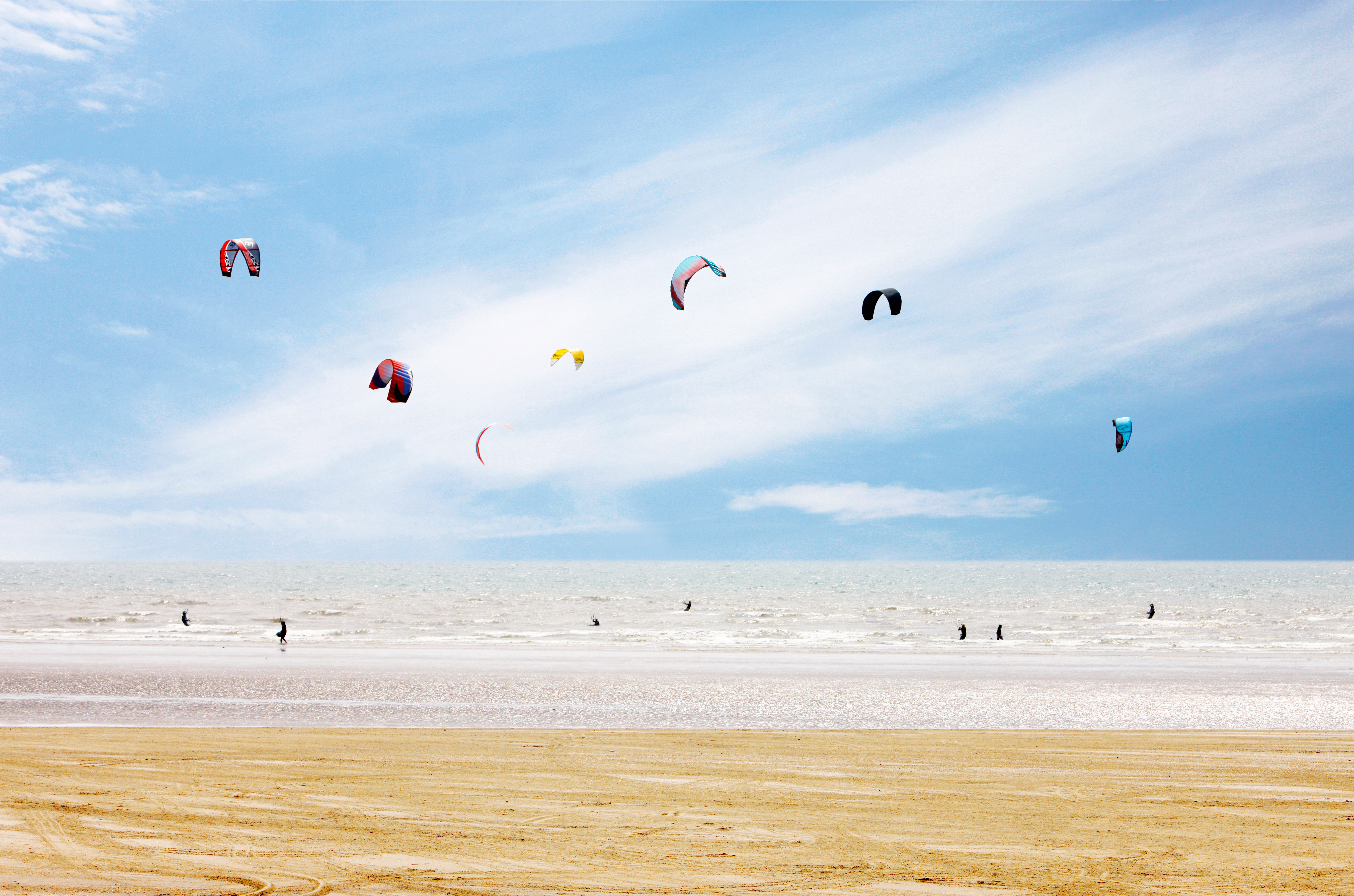Polluting water executives now face up to two years in prison, but will the new laws make much of a difference?
The Government has announced that water company executives caught covering up illegal sewage spills could now be imprisoned for two years, under new laws — but many still have their doubts.


Exquisite houses, the beauty of Nature, and how to get the most from your life, straight to your inbox.
You are now subscribed
Your newsletter sign-up was successful
In my household, the one Monopoly square no one wants to land on during a spirited family game, is ‘Water Works’. As a property on the board it is fickle and provides mixed-yields, and the British water industry has of late been equally undesirable. In the water world, the Monopoly square that plenty of executives have been avoiding landing on consistently, is jail.
Until now.
On April 24, the Department for Environment, Food and Rural Affairs (Defra) announced that this was set to change. Moving forward, any executives covering up illegal sewage spills could be imprisoned for up to two years. The news follows hot on the heels of a Surfers Against Sewage 2024 Water Quality Report, which found that incidents were the highest in a decade. In the past, water regulators trying to protect our seas, rivers and lakes have faced significant obstruction when trying to prosecute the water company officials who, according to evidence, have been covering up illegal sewage spills. The new laws represent the strongest sentencing powers brought against water executives in history.
After the privatisation of water companies in 1989 by Margaret Thatcher’s Conservative Government, only three water company officials have been prosecuted for obstruction of investigations into their behaviour by the Environment Agency, without appeal. The maximum punishment? In theory, a fine. None, however, were issued. The Water (Special Measures) Act 2025 is responsible for the laws, which also mean anyone found to be polluting waterways will be charged for the cost of the criminal investigations into their malpractice. In a further blow to water bosses, the payment of bonuses will also be banned if they fail to meet the required standards necessary for protecting their company’s finances, their consumers and the environment. Thames Water, England’s biggest water company, was responsible for pumping almost 300,000 hours worth of raw sewage into our water last year. Its chief executive is Chris Weston — he is paid an annual salary of £85,000, plus a bonus of up to 156%.

Surfers Against Sewage has been on the of most vocal charities campaigning to protect Britain's oceans, waves, beaches and marine life.
The announcement comes as the National Audit Office, the state spending watchdog, said the government and water regulators’ actions meant public trust in the sector had hit a record low, at the same time as increases to consumer bills. They have accused three regulatory bodies: Ofwat, the Drinking Water Inspectorate and the Environment Agency, along with Defra, of contributing to this. ‘No prison sentences have been handed to water executives since privatisation despite widespread illegal sewage discharge into rivers, lakes and seas,’ Defra acknowledged. ‘These new, tougher penalties are essential because some water companies have obstructed investigations, failing to hand over vital evidence related to illegal sewage discharges. This has prevented crackdowns against law-breaking water companies.’
Steve Reed, the environment secretary, said: ‘Bosses must face consequences if they commit crimes’. The chief executive of the Environment Agency, Philip Duffy, called the act ‘a crucial step’.
However, Giles Bristow, the chief executive of Surfers Against Sewage, is unsure about how much change the ruling will bring. In a written statement he said: ‘It is now law that water company bosses can go to prison if they've tried to cover up illegal activity. Water companies have been getting away with it for too long whilst greedy bosses and fat cat investors take home the cash. But if the government thinks that this is what it takes to transform the water companies into responsible law-abiding businesses, then it is much mistaken.’
Exquisite houses, the beauty of Nature, and how to get the most from your life, straight to your inbox.
The root of the problem, according to Bristow, lies in the system, which he described as ‘utterly broken’. ‘For as long as profit and shareholder payouts remain the primary objective of England's privatised water companies, our seas, rivers and lakes will continue to be the dumping ground for the disgusting deluge of sewage discharges,’ he adds. ‘Surfers and swimmers will keep paying the price with their health and we will all foot skyrocketing water bills’. Louise Reddy, also of Surfers Against Sewage, called the change in the law ‘a really good start’, but recalled the ‘really horrific regulation’ the water industry has had over the past 30 years. ‘There’s been quite a lot of laws that already exist that haven't been upheld,’ but added that regulators lack funding, which limits their capabilities to hold power to account.

The charity is petitioning the Independent Water Commission to demand that the government radically reform the water industry. ‘For us, it could be a private model,’ says Reddy, ‘but with more sustainable finance’. Matt Staniek, the founder of Save Windermere, which aims to stop the sewage in England’s largest lake, has a differing opinion: ‘Fundamentally, the failure of privatisation has to be acknowledged. It has to be addressed and the government has to look at how they turn the industry into a not-for-profit-system that benefits people in the environment above shareholders. They don’t want to assess the financial model of the industry and, until they do that, they’re not really getting on top of the issue. The system has failed. It doesn’t work.’
Take Thames Water for example, says Staniek, which in January announced that it would raise the base pay of their bosses if Ofwat put a limit on bonuses. And the laws — does he think that they will make a difference?
‘They’re totally meaningless’, he says. ‘All smoke and mirrors from the Government. They’ve had powers to do this for 30 years and there’s never been one water company boss that has ever seen inside of a jail cell. It’s just a distraction away from the fact that they’re not enforcing the law, they’re not holding the water companies accountable and they’re allowing the continued exploitation of beautiful places in this country, like Lake Windermere.’
Lotte is Country Life's Digital Writer. Before joining in 2025, she was checking commas and writing news headlines for The Times and The Sunday Times as a sub-editor. She has written for The Times, New Statesman, The Fence and Dispatch magazine. She pens Country Life Online's arts and culture interview series, Consuming Passions.
